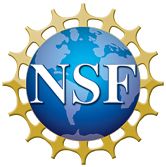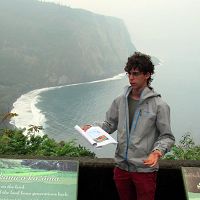Hahm et al., 2018
In-situ nuclear magnetic resonance detection of fracture-held water in variably saturated bedrock
Rempe, D.M., Schmidt, L.M. & Hahm, W.J. (2018)
SEG Technical Program Expanded Abstracts 2018
-
Eel, INVESTIGATOR, COLLABORATOR
-
Eel, GRAD STUDENT
-
Eel, INVESTIGATOR, COLLABORATOR
Abstract
Many near-surface environments consist of variably weathered and fractured bedrock, where water can be dynamically stored in different pore environments. The fluxes and residence times of water strongly depend on the configuration of water in pore space and, in particular, the partitioning of water between fractures and the pores of the rock matrix. However, in-situ monitoring methods capable of discriminating between these two reservoirs are lacking. Here, we evaluate low-field borehole nuclear magnetic resonance (NMR) as a method for detecting water storage in fractures. We take advantage of a rising and falling groundwater table at two monitoring sites with instrumented boreholes (one in mudstone and the other in sandstone) to identify the NMR-derived relaxation time associated with the saturated (high water table) and unsaturated (low water table) states of the weathered bedrock. In both rock types, we observe a long relaxation time signal greater than 30 ms at saturation that diminishes or disappears as the bedrock desaturates. These long relaxation times are interpreted to be associated with saturated fractures and indicate that dynamic water storage at both sites occurs within fractures, supporting existing conceptual models. Our preliminary results illustrate the utility of NMR for partitioning between water storage in fractures and the rock matrix in complex weathered bedrock environments.
Citation
Rempe, D.M., Schmidt, L.M. & Hahm, W.J. (2018): In-situ nuclear magnetic resonance detection of fracture-held water in variably saturated bedrock. SEG Technical Program Expanded Abstracts 2018. DOI: 10.1190/segam2018-2998484.1
 This Paper/Book acknowledges NSF CZO grant support.
This Paper/Book acknowledges NSF CZO grant support.
Explore Further



